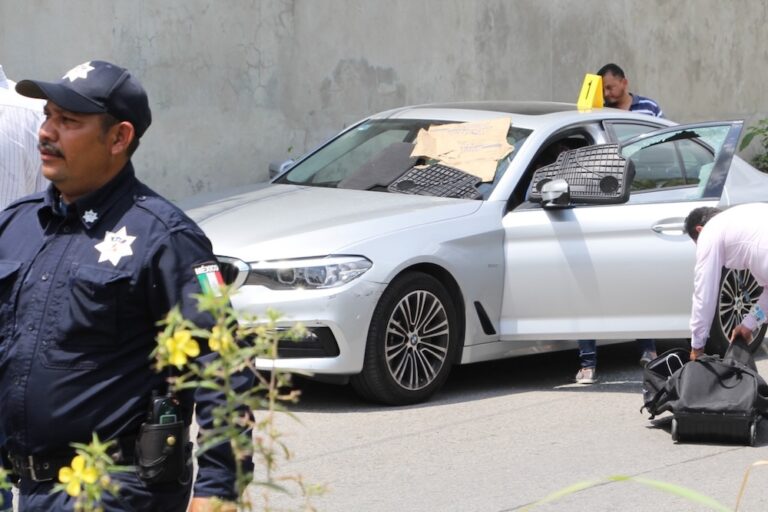"Mexican President López Obrador's recent attempts to discredit journalist Nayeli Roldán, three critical news outlets, and ARTICLE 19 are more proof that his administration prefers harassing journalists over solving the country’s catastrophic press freedom crisis."
This statement was originally published on cpj.org on 11 May 2023.
Mexican President Andrés Manuel López Obrador must stop making baseless criticisms of local news outlets and the international free expression organization Article 19, the Committee to Protect Journalists said Thursday.
Since March, López Obrador has sharply criticized Article 19, national investigative magazine Proceso, privately owned online news outlets Animal Político and Aristegui Noticias, and Animal Político investigative reporter Nayeli Roldán over their coverage of the Mexican federal government’s alleged use of illegal spyware.
The president’s statements have led to online abuse and threats of violence against Article 19, the three outlets, and their reporters, according to Roldán, Animal Político’s editorial director Daniel Moreno, and Article 19’s regional director Leopoldo Maldonado, who all spoke to CPJ by phone.
“Mexican President López Obrador’s recent attempts to discredit journalist Nayeli Roldán, three critical news outlets, and Article 19 are more proof that his administration prefers harassing journalists over solving the country’s catastrophic press freedom crisis,” said CPJ Mexico Representative Jan-Albert Hootsen. “López Obrador’s constant verbal attacks on reporters, which serve only as a distraction from the issues they report on, must stop before they lead to further violence against the press.”
Since he assumed office in 2018, López Obrador repeatedly stated that his government does not engage in illegal surveillance with spyware and denied that his administration uses such applications for anything other than national security.
However, a series of reports published in March 2023 provided evidence that the Mexican military used Pegasus, a spyware developed by the Israeli NSO group, to monitor conversations between human rights activist Raymundo Ramos and two journalists at the Mexico City newspaper El Universal since 2019.
In a March 10 press briefing, Roldán asked López Obrador about those allegations, to which he responded by saying Roldán was “always against his government.” When Roldán insisted the military must explain the legal basis for the spying, he accused her of “not being objective,” and called her “unprofessional” and part of the “tendentious, bribed media.”
During an April 28 press conference, the president told reporters that Roldán was paid in 2022 by the National Institute for Access to Information, a federal autonomous body that handles freedom of information requests and regulates the protection of personal data. López Obrador has been highly critical of the institute, which he claims is “useless,” “onerous, opaque, and unnecessarily expensive,” and opposes his administration and him personally, according to news reports.
During a May 2 press briefing, López Obrador accused Article 19 of being funded by the U.S. government to work “against his government,” therefore “violating our sovereignty” and called the organization “interventionist,” adding that he would send a diplomatic cable to the U.S. government “in protest.”
Moreno, Roldán, and Maldonado told CPJ that the president’s remarks have led to many hateful comments on social media against them personally, as well as on websites and social media pages of Article 19, Proceso, Animal Político, and Aristegui Noticias. Roldán said she received “vicious” misogynistic comments, while Maldonado said he and his organization received many threats and statements echoing the president’s comments.
“I’ve been receiving lots of insults, an increasing number. I’d even call it stalking,” Roldán told CPJ, adding that the pressure has forced her to keep a lower profile on social media. “I can’t send out a single tweet without it receiving insults.”
Moreno said the president’s comments have made him and his reporters feel less safe, leading some of his reporters to ask not to be named in bylines.
“We try to respond to the president, who constantly lies about us and never rectifies false information. His daily press briefing is a far bigger platform than anything we could ever hope to have,” Moreno said. “We have seen an increase in the number of attacks and insults against us, including social media users openly asking who our family members are to accost them as well.”
CPJ contacted presidential spokesperson Jesús Ramírez Cuevas for comment via messaging app but did not receive any response.
Mexico was the deadliest country in the Western Hemisphere for journalists in 2022. At least three reporters were murdered in direct connection to their work, and CPJ is investigating another 10 killings to determine the motive.



